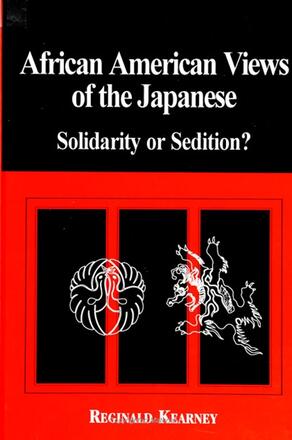
African American Views of the Japanese
Solidarity or Sedition?
Alternative formats available from:
The first comprehensive chronicle of the events shaping African Americans’ views about Japan and the Japanese.
Description
African American Views of the Japanese reveals a page of history long ignored. In black America, Japanese were not always known for racist remarks, Sambo images, and discriminatory hiring practices. Once, thousands of African Americans thought of the Japanese as "champions of the darker races. " Ordinary urban ghetto dwellers, share-croppers, and tenant farmers looked to the Land of the Rising Sun for salvation. Some of the greatest leaders in the fight for equal rights and greater freedoms—such as W. E. B. Du Bois, Monroe Trotter, Mary Church Terrell, Ida Wells Barnett, George Schuyler, A. Philip Randolph, and James Weldon Johnson—saw allies in the struggle for equality. The Afro-centric Marcus Garvey shared his stage with the Japanese. In his teachings, Elijah Muhammad taught that the original black man was Asian and acknowledged Japan's role as leader.
Here Reginald Kearney examines the role played by Japan and its people in the dreams of prosperity for many African Americans. He also uncovers the shock many blacks felt upon learning that this high regard for the Japanese had been betrayed by discriminatory remarks and actions. But overall Kearney remains optimistic that the African American-Japanese rift can be mended.
Reginald Kearney is Visiting Professor at Clark Atlanta University. He is the author of Nijuuseiki no Nihonjin: Amerika Kokujin no Nihonjinkan (The twentieth century Japanese: African American views of the Japanese), 1900–1945 (translated by Shin Yamanoto) and Reconcilable Differences: Issues in African American-Japanese Relations.
Reviews
"…well-researched and highly readable…" — Journal of Japanese Studies
"There is an unintended timeliness about the theme of this book in the form of various affirmative responses to Japanese life while, in our own time, a wave of antipathy has risen between African Americans and Asians. Kearney has opened a corner of World War II black cultural life that many historians have known about but have never taken up: the ambiguity of the group toward Japanese whom they regarded in part as oppressed 'brown' brothers. Kearney makes imaginative use of the archival sources such as the Office of War Information and other federal agencies. He has reached into a pool of American social life heretofore unrevealed. " — Thomas Cripps, Professor Emeritus, Morgan State University